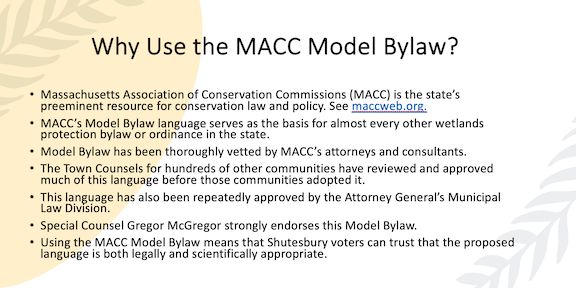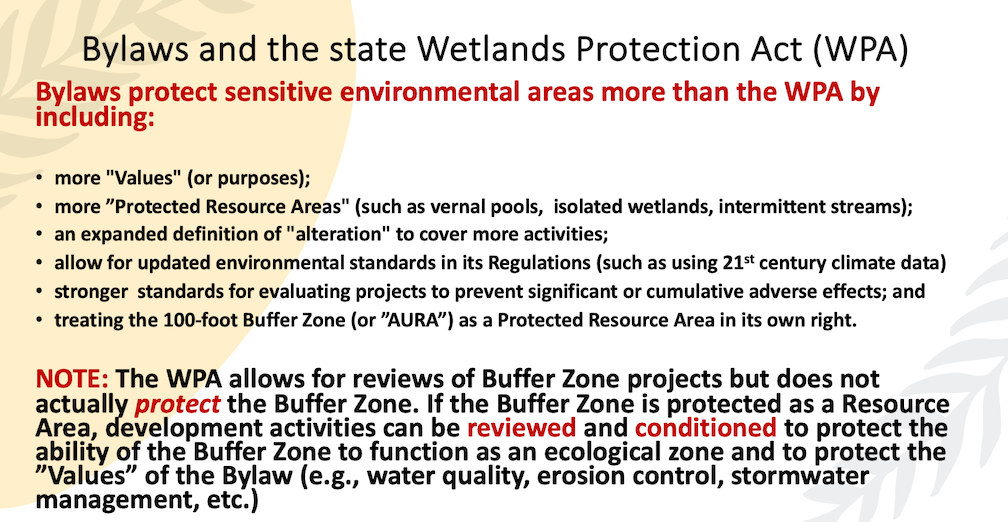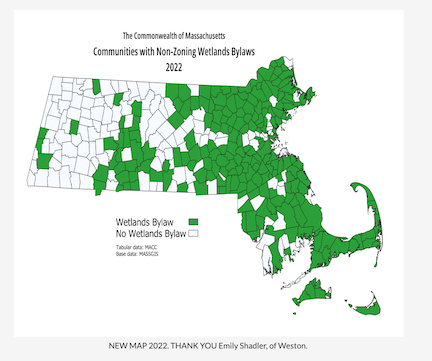CURRENT SHUTESBURY GENERAL WETLANDS PROTECTION BYLAW, ADOPTED 1987
The Conservation Commission has proposed an update to the existing Wetlands Protection Bylaw to reflect newer legal standards and environmental science. A Public Hearing was held to gather public comments, both oral and written, on Monday, December 18, at 6 p.m. The final draft was approved by the Commisisson on 12/21/23 and submitted to the Select Board for placement on the Town Warrant of the upcoming Special Town Meeting.
A Special Town Meeting to consider and possibly approve this draft Bylaw is scheduled for at the Shutesbury Elementary School, on Tuesday, January 16, 2024--time to be determined.
FINAL DRAFT BYLAW, APPROVED BY COMMISSION ON 12/21/23
Public Hearing PowerPoint Overview

Click here for a Comparison of the Existing Bylaw and the Proposed Bylaw
Click Here for Comparison of First Draft of Bylaw and the MACC Model Bylaw--with comments and sources

WETLANDS PROTECTION BYLAW BACKGROUND
The current Wetlands Protection Bylaw was passed at the Shutesbury Annual Town Meeting in 1987 and revised in 1990.
According to the Massachusetts Association of Conservation Commissions (MACC), 220 towns and cities in Massachusetts now have local wetlands protection bylaws and ordinances, and more are added every year. 
The Shutesbury General Wetlands Protection Act Bylaw provides additional protections for wetland resource areas that are not fully protected under state law, including the 100-foot Buffer Zone (also referred to as the Adjacent Upland Resource Area or "AURA").
For more information about the importance of the AURA for the protection of climate change resilience, water quality, water quantity, and wildlife habitat, see the resources in the right sidebar of this page.
Bylaws are adopted by communities seeking stronger wetlands protections than provided by the Wetlands Protection Act (WPA), the state environmental law that applies across the Commonwealth. Evolving science and legal standards have outpaced the WPA which has not changed much over the years.
Under the Home Rule state law, communities have the right to adopt stronger environmental protections than what state law permits.
